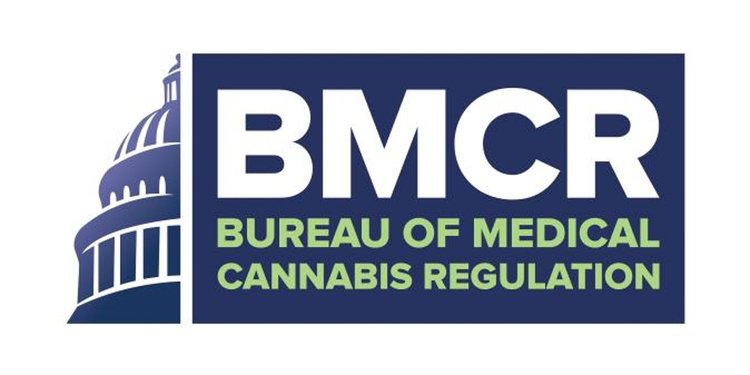The Stage is Set
According to the Marijuana Policy Group, the U.S. cannabis industry is expected to reach more than $13 billion in sales by 2020 and create more jobs than the U.S. manufacturing industry. According to Viridian Capital’s Cannabis Deal Tracker, there were close to 100 M&A transactions in the U.S. cannabis industry in 2016 and approximately $1.2 billion was raised in equity and debt. As the cannabis industry has grown more mature and businesses begin to have more capital available, the M&A activity within the industry is poised to grow significantly over the next years to assist businesses gain necessary scale and take advantage of synergies and diversification.
The Obvious Wrinkle
U.S federal law has prohibited the manufacture and distribution of cannabis since 1935. The U.S. regulates drugs through the Controlled Substances Act, which classifies cannabis as a Schedule I drug (i.e., drugs determined to have a high potential for abuse with no currently accepted medical use and a lack of accepted safety regarding their use). Yet, more than 25 states have by now legalized cannabis for medical and/or recreational purposes and, as a result, there is a clear conflict between such state laws and existing federal law. To possibly help bridge that conflict, the U.S. Attorney General’s office in 2013 issued guidance directing the federal government not to intervene with state cannabis laws except in specific, limited circumstances, but, contrarily, the DEA has shown no desire to re-classify cannabis. To add to the confusion, President Trump and the new U.S. Attorney General have provided mixed statements and signals about their positions.
All of this means that it continues to be risky to acquire cannabis businesses. The requirements to legally grow, distribute, prescribe, and use cannabis for either medical or recreational purposes vary widely by country, state, and local jurisdiction, making it tricky to determine whether such businesses can be legally combined, in particular, across state lines.
Pick the Right Team of Advisors
When preparing to sell or buy a cannabis business, it is important to pick the right team of advisors. Your regular legal counsel, accounting firm or CPA may not be the right advisors for a cannabis M&A transaction. Choose a legal counsel that not only has experience with cannabis laws and regulations, but also has cannabis M&A experience and can offer expert advice on areas like IP, employment, tax matters, etc. Similarly, verify that your accounting firm or CPA has real experience with financial and quality of earnings analysis and due diligence.
Conduct Gating Due Diligence Up Front
In any contemplated M&A transaction, it is wise to prioritize your due diligence investigations. There will always be some more prominent risks and business objectives in a particular industry or with respect to a specific target business. It will be more cost and time effective if those specific risks and business objectives are prioritized early in the due diligence process. These can dictate whether you even want to pursue the target further before you dig into a deeper and broader due diligence investigation. Conducting gating due diligence up front is even more important in an industry like cannabis that contain complex and thorny regulatory hurdles.
So, before you spend money and time on a broader legal, business and financial due diligence investigation, have your legal counsel analyze and confirm that the potential transaction is feasible from a regulatory perspective. This will include whether it is possible to obtain or transfer necessary local and/or state licenses and whether a combination or sale can occur across state lines if necessary. Early on in the process, It is also advisable to request that the target business complete a legal compliance questionnaire or discuss with the target its regulatory compliance program, policies and training. Such up front due diligence will either clear a path to negotiations and broader confirmatory due diligence or flush out “red flags” that may kill a possible deal or require the buyer to investigate further before proceeding.
Important Terms and Pitfalls in the M&A Agreement
Generally, a sale or purchase agreement for a cannabis business does not appear to vary much from a similar agreement in any other industry. However, the complex environment and the premature nature of the industry impacts certain deal terms and processes in different ways from most other developed industries.
Here are few examples to keep in mind when preparing and negotiating a sale or purchase agreement:
- Third Party and Governmental Consents: Buyer’s legal due diligence must focus on the consents that may be required from seller’s suppliers, customers, landlords, licensors or other third parties under relevant contracts. Additionally, the due diligence should focus on consents and approvals required by local and state regulators as a result of the sale. The M&A agreement should contain solid seller representations and warranties about all such consents and approvals and any such material consents and approvals should, from a buyer’s perspective, be a condition precedent to closing of the transaction.
- Legal Compliance: A buyer should not agree to a boilerplate seller representation about the target’s compliance with laws. Be specific and tailor seller’s legal compliance representation to relevant state and local cannabis laws, regulations and ordinances. From a seller perspective, be careful and thoughtful about any appropriate exceptions (including the federal prohibition) to be disclosed to buyer in the disclosure schedules underlying the sale or purchase agreement.
- Financial statements: The cannabis industry is very fragmented and consists of many small businesses. Many of these small businesses do not have financial statements prepared in accordance with GAAP and may consist of only management prepared financials. In that scenario, a buyer should have its financial advisor do an analysis of the financials available and ask seller to provide a representation and warranty about the accuracy and good faith preparation of the provided financials.
- Escrow: Typically, a buyer will request some part of the purchase price be placed with an independent financial institution for a period of time post-closing as a source of recovery for losses as a result of breaches by seller of any of the representations and warranties in the definitive sale or purchase agreement. Due to the federal cannabis and banking regulations, many of the larger commercial banks will not provide financial services to cannabis businesses, in particular if the business touches the plant. The parties must therefore consider alternatives, including local financial institutions with more relaxed compliance requirements or perhaps place the escrow in a trust account of a law firm or other independent party.
- Working Capital Dispute Procedures: Similar to the escrow, larger accounting firms generally do not provide services to cannabis businesses. Due to the rapid evolution of cannabis related regulations, if the terms of the transaction include provisions for a post-closing working capital/purchase price adjustment and related dispute procedures, it is advisable to not name an arbiter in the agreement. Instead, parties should agree to mutually select the arbiter if and when a dispute should arise.
- Indemnification: Because of the tricky legal environment of the cannabis industry, it may be prudent for a buyer to request, at the very least, that certain parts of seller’s legal compliance representation and warranty not be subject to the “regular” caps, deductibles and other indemnification limitations. Also, if a buyer has unearthed a significant issue in its due diligence investigation, it should consider asking seller for a special indemnity for such issue that would be indemnifiable regardless of buyer’s knowledge of the issue and not be subject to the general indemnification limitations.
- R&W Insurance: If there’s a lot of competition for the purchase of a target, particularly in a bidding process, it is now common for buyer to offer to purchase a representation and warranty insurance policy (“R&W Insurance”) to possibly gain an advantage by limiting the seller’s post-closing indemnification exposure. The good news is that many of the R&W Insurance carriers do offer such insurance in connection with the sale and purchase of cannabis businesses. However, typically, R&W Insurance cannot be obtained for insured amounts of less than $5 million. Experienced M&A counsel can advise of the advantages and disadvantages of R&W Insurance and assist in the negotiation of the related terms.
The above are just some examples of what to expect in a cannabis M&A transaction. Every M&A transaction will have its unique issues that will need to be appropriately reflected in the sale or purchase agreements and good M&A practices will continue to evolve with the industry. If you are an owner of a successful cannabis business, buckle your seat belt and be prepared for an exciting ride as the industry gets closer to significant consolidation.







 While the release states they have not yet officially awarded them the contract, it says Franwell is the apparent successful vendor (ASV) to replace their current system. “An ASV is the procurement term used for the highest scoring, responsive vendor,” says the press release.
While the release states they have not yet officially awarded them the contract, it says Franwell is the apparent successful vendor (ASV) to replace their current system. “An ASV is the procurement term used for the highest scoring, responsive vendor,” says the press release.

 According to West, the 280E tax code issue has an enormous impact on the industry. This tax code essentially means that businesses cannot make deductions for normal business operations from the sale of schedule I narcotics. Because cannabis is still listed as schedule I, businesses touching the plant often pay a majority of their profits to federal taxes. “When they are handing over 80% of their profit to the federal government, which is a lot of money that isn’t being pumped into the local economy, that is a big problem,” says West. “We want to highlight how 280E isn’t just harmful to businesses, but also harmful to the local economies and states that have businesses dealing with cannabis in them.” As the primary organization lobbying on behalf of the cannabis industry in Washington D.C., they have three full-time staff as well as a contracted lobbying firm working there. “We are the voice on Capitol Hill for the businesses of the cannabis industry,” says West. “We primarily focus on a couple of core issues, and one of them is 280E tax reform since that is such a significant issue for our members touching the plant.”
According to West, the 280E tax code issue has an enormous impact on the industry. This tax code essentially means that businesses cannot make deductions for normal business operations from the sale of schedule I narcotics. Because cannabis is still listed as schedule I, businesses touching the plant often pay a majority of their profits to federal taxes. “When they are handing over 80% of their profit to the federal government, which is a lot of money that isn’t being pumped into the local economy, that is a big problem,” says West. “We want to highlight how 280E isn’t just harmful to businesses, but also harmful to the local economies and states that have businesses dealing with cannabis in them.” As the primary organization lobbying on behalf of the cannabis industry in Washington D.C., they have three full-time staff as well as a contracted lobbying firm working there. “We are the voice on Capitol Hill for the businesses of the cannabis industry,” says West. “We primarily focus on a couple of core issues, and one of them is 280E tax reform since that is such a significant issue for our members touching the plant.”


















